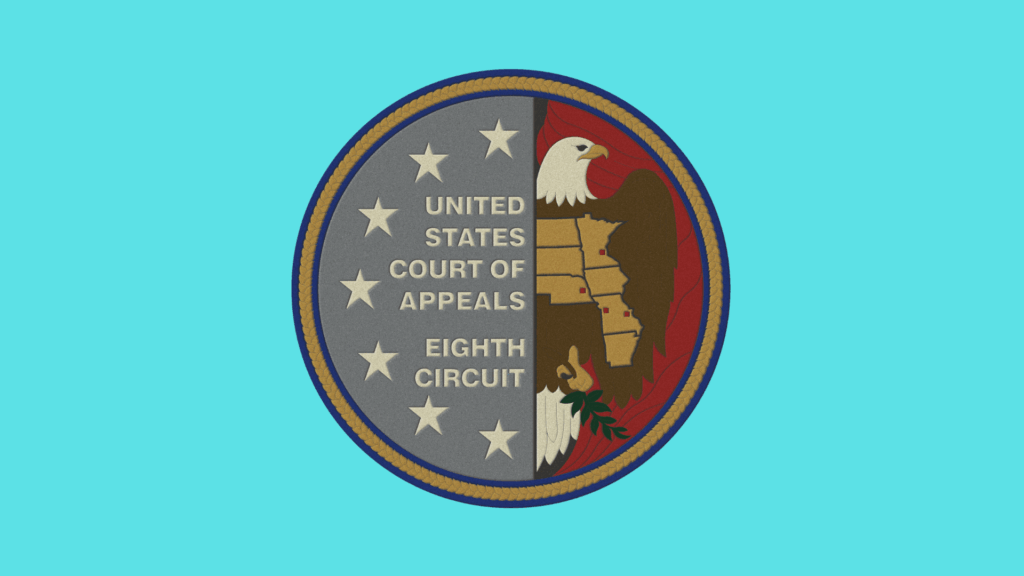The Eighth Circuit Court of Appeals, which oversees Arkansas and several other states, has become a troubling stronghold for anti-Black judicial rulings. With a bench now stacked with Trump-appointed judges, the court is increasingly hostile to the voting rights of African Americans. Recent decisions have made it clear: this circuit is not just unfriendly to our rights—it’s actively working to strip them away.
The Eighth Circuit’s Hostile Stance on Section 2 of the Voting Rights Act
In the 2023 case Arkansas State Conference NAACP v. Arkansas Board of Apportionment, the Eighth Circuit ruled that Section 2 of the Voting Rights Act (VRA) does not give private citizens the right to sue. This decision is a direct assault on one of the VRA’s core provisions, limiting enforcement to the U.S. Department of Justice (DOJ) alone.
For years, the DOJ has been a crucial ally in the fight against voter suppression. However, under Trump-appointed figures like Attorney General Pam Bondi and Civil Rights Division head Harmeet Dhillon, the DOJ has shown little commitment to protecting the voting rights of African Americans. With many courts rejecting Trump’s baseless 2020 election claims, it’s clear that his administration is bent on reshaping the electorate to favor his MAGA agenda—leaving our communities vulnerable to further disenfranchisement.
Special Needs Voters: Another Setback
This issue came up again in Arkansas United v. John Thurston, where Arkansas United, a nonprofit helping immigrants vote, attempted to assist special needs voters. They were blocked by a state law that limits anyone, except election officials, from assisting more than six voters. The organization sued, arguing that Section 208 of the VRA, which allows voters with disabilities or limited literacy to receive assistance from someone of their choice, should override the state law.
In a decision that defies both the VRA’s clear intent and common sense, the Eighth Circuit ruled that private citizens cannot sue under Section 208. This ruling reflects the court’s broader pattern of siding with state laws that undermine voter access, leaving groups like Arkansas United with no recourse but to rely on a DOJ led by individuals who have no interest in protecting our rights.
The Eighth Circuit’s Role in Weakening the VRA
These rulings are nothing short of an attack on the Voting Rights Act. By limiting private citizens’ ability to enforce key provisions of the VRA, the court has made voting rights enforcement subject to the whims of political leadership in the DOJ. This strategy undermines the VRA’s power, leaving disenfranchised voters with no means of recourse unless the DOJ chooses to intervene—something decreasingly likely under the current administration.
A Conservative Strategy to Dismantle Civil Rights Protections
These decisions are part of a larger, concerted effort by conservatives to dismantle the VRA. Sixty years after its passage, white conservatives, with the help of Trump-appointed judges, are actively working to undo the progress made during the Civil Rights Movement. By filling the judiciary with right-wing judges, the GOP is laying the groundwork for a long-term strategy to strip away civil rights protections and disenfranchise communities of color.
Elections Have Consequences: The Urgent Need for Action
The message is clear: elections have consequences. The future of voting rights is on the line, and it’s critical that we do not elect candidates who are committed to stripping those rights away. Candidates like Trump, who leads a white supremacist movement and works to undermine the very foundation of our democracy, do not have African Americans’ best interests at heart.
We must make our voices heard at the ballot box. Our votes are our power, and they must be used to elect leaders who will protect our rights and fight for justice. Voting for individuals who seek to suppress our voices only strengthens a system that marginalizes us. The fight for our voting rights is far from over. We cannot afford to sit on the sidelines—we must vote for the change we deserve and defend the rights we’ve fought for.

